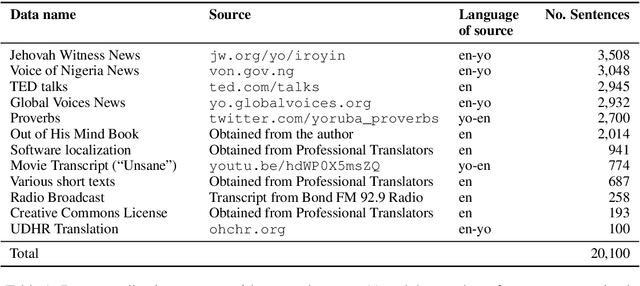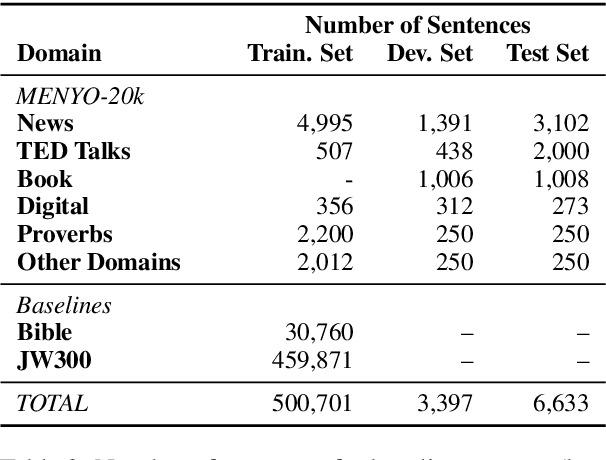Adesina Ayeni
MENYO-20k: A Multi-domain English-Yorùbá Corpus for Machine Translation and Domain Adaptation
Mar 15, 2021



Abstract:Massively multilingual machine translation (MT) has shown impressive capabilities, including zero and few-shot translation between low-resource language pairs. However, these models are often evaluated on high-resource languages with the assumption that they generalize to low-resource ones. The difficulty of evaluating MT models on low-resource pairs is often due the lack of standardized evaluation datasets. In this paper, we present MENYO-20k, the first multi-domain parallel corpus for the low-resource Yor\`ub\'a--English (yo--en) language pair with standardized train-test splits for benchmarking. We provide several neural MT (NMT) benchmarks on this dataset and compare to the performance of popular pre-trained (massively multilingual) MT models, showing that, in almost all cases, our simple benchmarks outperform the pre-trained MT models. A major gain of BLEU $+9.9$ and $+8.6$ (en2yo) is achieved in comparison to Facebook's M2M-100 and Google multilingual NMT respectively when we use MENYO-20k to fine-tune generic models.
 Add to Chrome
Add to Chrome Add to Firefox
Add to Firefox Add to Edge
Add to Edge